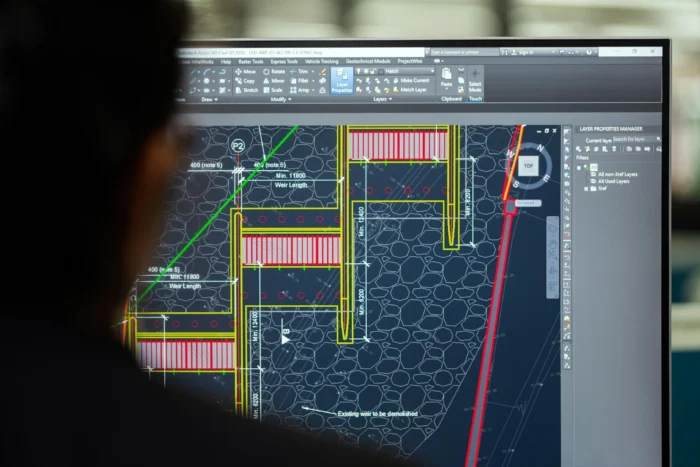As you make your decision on the A Levels for Engineering, consider how your choices align with the entry requirements of the universities you’re interested in and how they will prepare you for the challenges of an engineering degree.
How can StudySmarter help you make this choice post-GCSE Results Day? Not only are we an all-in-one learning app that offers 100% free explanations, flashcards, and AI-powered mock exams for everyone to use, we also offer advise on A-Level selection, University life and careers!
What A Levels Do You Need for Engineering?
When preparing for a degree in Engineering at a UK university, selecting the right A-level subjects is crucial. Engineering courses often have specific subject requirements and recommendations to ensure students have the necessary skills and knowledge for the challenges ahead.
Below is a table categorizing A-level subjects into required, recommended, and useful categories for a degree in Engineering.
| Category | Subjects |
| Required Subjects | – Mathematics: Essential for all engineering disciplines, as it provides the foundation for problem-solving and analytical thinking. |
| – Physics: Crucial for understanding the physical principles that underlie most engineering fields, including mechanics, electricity, and thermodynamics. | |
| Recommended Subjects | – Further Mathematics: Builds on Mathematics and is particularly useful for fields such as mechanical, electrical, and aerospace engineering. |
| – Chemistry: Important for chemical engineering and useful for understanding materials science. | |
| – Computer Science: Beneficial for software engineering, electronic engineering, and any field that involves programming or computational analysis. | |
| Useful (Not Necessary) | – Design and Technology: Provides practical skills and an understanding of design processes, which are helpful in engineering design and project work. |
| – Biology: Useful for biomedical engineering and any interdisciplinary fields that involve biology and engineering. | |
| – Economics: Offers insights into the economic aspects of engineering projects, useful for project management and industrial engineering. | |
| – Geography: Helpful for civil engineering, particularly in areas like environmental engineering, geotechnics, and urban planning. | |
| – Business Studies: Provides knowledge of business principles that can be beneficial in management roles within engineering fields. |
Detailed Explanation
Required Subjects
- Mathematics:
- Core to Engineering: Mathematics is fundamental to all engineering disciplines. It provides the tools for solving complex problems, analyzing systems, and understanding the quantitative aspects of engineering work.
- Universally Required: Almost all UK universities require A-level Mathematics for entry into engineering courses.
- Physics:
- Understanding Physical Principles: Physics is essential for understanding the fundamental principles that govern the physical world, which are directly applicable to fields such as mechanical, electrical, civil, and aerospace engineering.
- Application to Engineering: Concepts such as mechanics, thermodynamics, and electromagnetism are directly applied in engineering, making Physics a critical subject for most engineering courses.
Recommended Subjects
- Further Mathematics:
- Advanced Mathematical Skills: Further Mathematics extends the concepts learned in A-level Mathematics and is particularly useful for fields that require a high level of mathematical competence, such as aerospace, mechanical, and electrical engineering.
- Enhancing Problem-Solving Ability: It provides a deeper understanding of mathematical principles and techniques, which can be a significant advantage in more mathematically intensive engineering courses.
- Chemistry:
- Chemical Engineering and Materials Science: Chemistry is crucial for chemical engineering and is also important in materials science, where understanding the properties and interactions of materials is key.
- Broader Scientific Understanding: It provides a broader scientific base, which can be beneficial in multidisciplinary engineering fields.
- Computer Science:
- Relevance to Modern Engineering: As engineering increasingly involves digital technology, programming, and computational analysis, Computer Science is highly relevant, especially for electronic, software, and systems engineering.
- Developing Computational Skills: It helps in developing logical thinking and problem-solving skills, which are useful across various engineering disciplines.
Useful (Not Necessary) Subjects
- Design and Technology:
- Practical Design Skills: This subject provides hands-on experience in designing and making products, which is useful in engineering design and innovation.
- Understanding of Materials and Processes: It helps in understanding the practical aspects of engineering, such as materials selection and manufacturing processes.
- Biology:
- Interdisciplinary Applications: Biology is particularly useful for students interested in biomedical engineering or any field that integrates biology with engineering principles.
- Understanding Biological Systems: It provides insights into biological systems, which can be critical in fields like biotechnology and environmental engineering.
- Economics:
- Economic Principles in Engineering: Economics is useful for understanding the financial and economic aspects of engineering projects, including cost analysis, resource management, and industrial processes.
- Broader Perspective: It offers a broader perspective on the impact of engineering projects on society and the economy.
- Geography:
- Environmental and Civil Engineering: Geography provides knowledge of physical landscapes, environmental issues, and urban planning, which are particularly relevant to civil and environmental engineering.
- Understanding Natural Systems: It helps in understanding the interaction between engineering projects and the environment.
- Business Studies:
- Management and Leadership: Business Studies provides knowledge of management, leadership, and entrepreneurship, which can be beneficial for engineers looking to move into management roles or start their own companies.
- Understanding Industry Context: It helps in understanding the business context in which engineering solutions are implemented.
What Grades Do I Achieve in My A Levels for Engineering at the Top 5 Universities in UK?
To study Engineering at a top UK university, achieving high grades in the right A-level subjects is essential. Engineering programs are competitive, and top universities typically have stringent entry requirements to ensure students are well-prepared for the rigorous coursework. Below is a detailed explanation of the typical grade requirements and subject preferences for engineering degrees at the top 5 universities in the UK.
Top 5 Universities for Engineering in the UK
- University of Cambridge
- Imperial College London
- University of Oxford
- University College London (UCL)
- University of Manchester
General Entry Requirements and Grades
| University | Typical A-Level Grades | Specific Subject Requirements | Additional Requirements |
| University of Cambridge | AAA | Required: Mathematics and Physics; Recommended: Further Mathematics. | STEP (Sixth Term Examination Paper) may be required; Interview required. |
| Imperial College London | AAA | Required: Mathematics and Physics; Recommended: Further Mathematics. | Interview required for most courses; some courses may require STEP or MAT (Mathematics Admissions Test). |
| University of Oxford | AAA | Required: Mathematics and Physics; Recommended: Further Mathematics. | PAT (Physics Aptitude Test) required; Interview required. |
| University College London (UCL) | A*AA | Required: Mathematics and Physics; Recommended: Further Mathematics. | Interview may be required for some courses. |
| University of Manchester | A*AA or AAA | Required: Mathematics and Physics; Recommended: Further Mathematics. | No additional test generally required, but strong personal statement and references needed. |
Detailed Breakdown
- University of Cambridge:
- Grades: AAA is typically required.
- Subjects: Mathematics and Physics are required, with Further Mathematics strongly recommended to support your application, particularly for more mathematically intensive courses.
- Additional Requirements: Applicants may need to take the STEP exam, especially if applying for courses like Engineering that are mathematically demanding. Interviews are also a key part of the selection process.
- Imperial College London:
- Grades: AAA is the standard offer.
- Subjects: Mathematics and Physics are required, with Further Mathematics recommended for a stronger application. Some courses may require the MAT or STEP, depending on the specific engineering discipline.
- Additional Requirements: Most applicants will need to attend an interview, and some may need to take an additional admissions test depending on the course.
- University of Oxford:
- Grades: AAA is typically required.
- Subjects: Mathematics and Physics are required, with Further Mathematics highly recommended to support the understanding of complex engineering concepts.
- Additional Requirements: The PAT is required for engineering applicants. As with Cambridge, interviews are a critical part of the admissions process.
- University College London (UCL):
- Grades: A*AA is typically required.
- Subjects: Mathematics and Physics are required, with Further Mathematics recommended for applicants aiming for highly technical engineering courses.
- Additional Requirements: Some courses may require an interview, but no additional admissions tests are generally required.
- University of Manchester:
- Grades: A*AA or AAA is typically required.
- Subjects: Mathematics and Physics are required, with Further Mathematics recommended for certain engineering disciplines.
- Additional Requirements: Generally, no additional tests are required, but a strong personal statement and references are important.
Why These Subjects Matter
- Mathematics: Provides the essential tools for solving complex engineering problems and understanding theoretical concepts.
- Physics: Offers the fundamental principles needed for understanding mechanics, electromagnetism, thermodynamics, and other core areas of engineering.
- Further Mathematics: Enhances your mathematical skills, which are particularly useful for fields like mechanical, electrical, and aerospace engineering, where advanced mathematical understanding is required.

Why is Required Subject important for X Degree?
The required A-level subjects for a degree in Engineering—Mathematics and Physics—are crucial because they provide the fundamental knowledge and skills necessary for success in engineering studies. Here’s why these subjects are important:
1. Mathematics
- Core to Engineering: Mathematics is the language of engineering. It is used extensively in all branches of engineering to model, analyze, and solve problems. Whether you’re designing a bridge, developing software, or creating electrical circuits, mathematical principles underpin almost every aspect of engineering.
- Problem-Solving Skills: Engineering requires the ability to think logically and solve complex problems. Mathematics teaches you how to approach problems systematically, break them down into manageable parts, and find solutions. This skill is essential for tackling the real-world challenges engineers face.
- Analytical Thinking: Advanced mathematical concepts like calculus, differential equations, and linear algebra are used to describe physical systems, optimize processes, and predict outcomes. These concepts are integral to understanding how engineering systems work and how they can be improved.
2. Physics
- Understanding Physical Principles: Physics provides the foundational understanding of the physical world that is essential for most engineering disciplines. Concepts such as mechanics, thermodynamics, electromagnetism, and fluid dynamics are directly applicable to engineering problems.
- Application to Engineering Design: Engineering is about applying scientific principles to design and build systems and structures. Physics teaches you how forces interact, how materials behave under stress, how energy is transferred, and how waves propagate. This knowledge is crucial for designing everything from buildings and vehicles to electronic devices and energy systems.
- Experimental and Practical Skills: Physics A-level includes practical experiments that help develop your ability to conduct tests, analyze data, and draw conclusions—skills that are vital in engineering. Engineers often need to test their designs and troubleshoot problems, which requires a solid understanding of how to set up and interpret experiments.
Why These Subjects Matter
- Mathematics and Physics are the backbone of engineering education. Without a strong grasp of these subjects, it would be difficult to understand the more advanced topics you’ll encounter in an engineering degree, such as structural analysis, fluid mechanics, thermodynamics, control systems, and electrical circuits.
- Mathematics provides the tools for modeling and analyzing engineering systems. Whether you’re optimizing a process, designing a structure, or simulating the behavior of a system, you’ll rely heavily on mathematical techniques to ensure accuracy and efficiency.
- Physics explains the fundamental laws of nature that engineers must work within. Understanding these laws is essential for predicting how designs will behave in the real world and for ensuring that they are safe, efficient, and effective.
- Preparation for University-Level Engineering: At the university level, engineering courses become increasingly specialized and complex. A strong foundation in Mathematics and Physics ensures that you are well-prepared to tackle these challenges and succeed in your studies.
StudySmarter Revision Guide
StudySmarter is the all-in-one-app for you. Our team of verified experts have carefully curated explanations and flashcards in many A-Level subjects to ensure everyone benefits and succeeds in their learning and exam goals!
Here’s a table of A-level subjects that are important or beneficial for pursuing a degree in Engineering at UK universities.
| A-Level Subject | Why It’s Important for Engineering | StudySmarter Link |
| Mathematics | Core to all engineering disciplines; essential for problem-solving and analytical thinking. | Mathematics |
| Physics | Provides understanding of physical principles crucial for engineering, including mechanics, electricity, and thermodynamics. | Physics |
| Further Mathematics (Recommended) | Enhances mathematical skills, particularly useful for more mathematically intensive engineering fields. | Further Mathematics |
| Chemistry (Recommended) | Important for chemical engineering and materials science; provides understanding of chemical processes and material properties. | Chemistry |
| Computer Science (Recommended) | Relevant for software, electronic, and systems engineering; develops programming and computational analysis skills. | Computer Science |
| Design and Technology (Useful) | Provides practical skills and understanding of design processes; useful in engineering design and project work. | Design and Technology |
| Biology (Useful) | Useful for biomedical engineering and interdisciplinary fields involving biology and engineering. | Biology |
| Economics (Useful) | Offers insights into the economic aspects of engineering projects, useful for project management and industrial engineering. | Economics |
| Geography (Useful) | Helpful for civil and environmental engineering; provides knowledge of physical landscapes and environmental issues. | Geography |
| Business Studies (Useful) | Provides knowledge of business principles beneficial in management roles within engineering fields. | Business Studies |
Top Tips for Choosing A Levels for Engineering
Choosing the right A-level subjects is an important decision, especially if you’re aiming for a degree in Engineering. Here’s some advice to help you make the best choices:
Reasons to Choose A-Level Subjects That Fit the Entry Requirements for an Engineering Degree:
- Meeting University Requirements:
- Essential Subjects: Mathematics and Physics are typically required for all engineering courses. Choosing these subjects ensures that you meet the entry requirements for the majority of engineering programs at UK universities.
- Strong Foundation: These subjects provide the foundational knowledge needed to understand complex engineering concepts, such as mechanics, thermodynamics, and electromagnetism. This will help you succeed in your engineering studies.
- Developing Core Skills:
- Analytical and Problem-Solving Skills: Mathematics is critical for developing strong analytical and problem-solving skills, which are essential in engineering. Physics complements this by providing a deep understanding of physical principles.
- Preparation for Specialized Fields: Depending on the branch of engineering you’re interested in, subjects like Further Mathematics, Chemistry, or Computer Science can provide specialized knowledge that will be beneficial in your chosen field.
- Flexibility in Engineering Disciplines:
- Broad Applicability: A-level subjects like Mathematics and Physics are applicable across all engineering disciplines, from civil and mechanical to electrical and chemical engineering. This gives you flexibility in choosing your specific engineering field later on.
- Competitive Edge: Choosing recommended subjects like Further Mathematics or Computer Science can give you a competitive edge in applications, especially for highly competitive courses or universities.
Reasons You Might Not Choose A-Level Subjects That Fit the Entry Requirements for an Engineering Degree:
- Personal Interest and Strengths:
- Lack of Interest in Core Subjects: If you do not enjoy or excel in Mathematics and Physics, you might find an engineering degree challenging and less enjoyable. It’s important to choose subjects that align with your strengths and interests to ensure success and satisfaction in your studies.
- Alternative Career Aspirations: If you’re not fully committed to pursuing engineering and are considering other career paths, you might prefer to choose A-level subjects that keep your options open, such as humanities or social sciences.
- Exploring Other Fields:
- Interdisciplinary Interests: If you have a strong interest in fields that intersect with engineering, such as economics, business, or biology, you might choose A-levels that align more with those interests. For example, combining Mathematics with Economics or Biology might lead to careers in environmental engineering or bioengineering, but could limit your options in traditional engineering fields.
- Non-Engineering Careers: If you’re considering a career outside of engineering, such as in finance, law, or arts, selecting A-levels that are more aligned with those fields might be more beneficial for your long-term goals.
Top 10 Jobs You Could Do with Selected A-Levels and a Degree in Engineering
| Job Title | Description |
| Civil Engineer | Designs and oversees the construction of infrastructure projects such as roads, bridges, and buildings. |
| Mechanical Engineer | Develops and designs mechanical systems, including engines, machines, and tools. |
| Electrical Engineer | Works on the design, development, and maintenance of electrical systems and components. |
| Chemical Engineer | Applies chemistry, physics, and engineering principles to the production of chemicals and materials. |
| Aerospace Engineer | Designs and tests aircraft, spacecraft, and missiles, focusing on aerodynamics and propulsion systems. |
| Software Engineer | Develops, tests, and maintains software applications and systems. |
| Biomedical Engineer | Combines engineering principles with medical and biological sciences to develop healthcare technologies. |
| Environmental Engineer | Works on solutions to environmental issues, such as waste management, pollution control, and sustainable design. |
| Structural Engineer | Analyzes and designs structures that support or resist loads, ensuring buildings and bridges are safe and stable. |
| Project Engineer/Manager | Oversees engineering projects from conception to completion, ensuring they meet technical specifications, timelines, and budgets. |
Conclusion: Choose StudySmarter for Your A-Level Journey
When selecting your A-level subjects, align your choices with both your interests and your career goals. If you’re committed to pursuing an engineering degree, selecting Mathematics and Physics is essential, as these subjects are required for most engineering programs. Further Mathematics, Chemistry, and Computer Science are recommended depending on the specific engineering field you’re interested in. However, it’s equally important to consider your strengths and passions. If you have interdisciplinary interests or are considering alternative career paths, selecting a combination of subjects that align with those interests might be more beneficial. Ultimately, your A-level choices should reflect both your academic abilities and your long-term aspirations, ensuring that you’re well-prepared for whichever path you choose to follow.
How we ensure our content is accurate and trustworthy?
At StudySmarter, we have created a learning platform that serves millions of students. Meet the people who work hard to deliver fact based content as well as making sure it is verified.

Gabriel Freitas is an AI Engineer with a solid experience in software development, machine learning algorithms, and generative AI, including large language models’ (LLMs) applications. Graduated in Electrical Engineering at the University of São Paulo, he is currently pursuing an MSc in Computer Engineering at the University of Campinas, specializing in machine learning topics. Gabriel has a strong background in software engineering and has worked on projects involving computer vision, embedded AI, and LLM applications.
Get to know Gabriel




